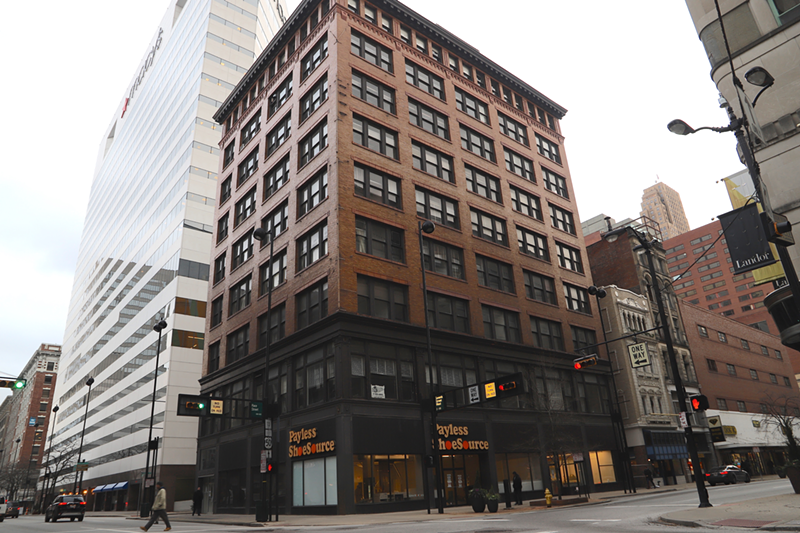Downtown Cincinnati could get two more boutique hotels soon — but Cincinnati City Council needs to green light property tax abatements for the multi-million-dollar projects first. The deals seem likely to pass, but they are the latest skirmish in an ongoing debate about the city's abatement policies.
Vision Hospitality, based in Tennessee, would like to undertake a roughly $13 million renovation at 37 W. Seventh St. to make a 94-room luxury hotel with a restaurant and coffee bar. The proposed abatements on that project are worth more than $11 million.
Vision purchased the Jewelers Exchange Building in December 2016 for $2.4 million from the family of Mayor John Cranley.
Another $10 million,130-room project at 299 E. Sixth St. by Indianapolis-based Sun Development would get a $5 million abatement under the proposed deals. That 10-story property, built in 1916, was formerly a Procter & Gamble office building.
Both of the property tax abatements would span 15 years and are tied to Leadership in Energy and Environmental Design standards, which incentivize environmentally-friendly architectural design.
The city needs to pay closer attention to such deals, council members Tamaya Dennard and Greg Landsman said during a City Council committee meeting yesterday. Landsman said he'd like to see the process by which abatements are awarded revised to reflect city priorities like affordable housing and higher wages for employees.
Landsman, Dennard and other Democrats on council have pushed for changes to the city's abatement policy in the recent past. But fellow Democrats like David Mann say the projects in question — both more or less vacant buildings at this point — aren't the place to start rolling back the city's policies.
Critics of the city's current policies could get their chance to change things next year, when the city's two-decade-old agreement with Cincinnati Public Schools about the way it structures property tax abatements expires. The city has already launched talks on how to renegotiate that agreement.
Hamilton County Auditor Dusty Rhodes in June said that more than 36 percent of property in the city is tax exempt, representing 10 percent of the city's total property value.
But staff at the city's Community and Economic Development Department has defended the city's practices around residential and commercial abatements.
“Unquestionably, we can say this agreement is still every day spurring development, growth and generating jobs,” DCED director Phil Denning said earlier this year at a joint meeting between the CPS board and City Council about abatements. “We’re becoming as a department more aggressive about how we underwrite these deals."
Denning pulled out several examples of abatement deals that spurred projects with positive outcomes for the city and school board, including the Machine Flats, a historic building in Camp Washington converted into apartments, and downtown’s Residence Inn. But when pressed, Denning said he didn’t have overall numbers for the return on investment for abatements. That’s been an issue in the past — media reports have shown the city doesn’t always have answers about the results of the hundreds of millions of dollars in various tax deals, grants and other incentives it has given out over the past decade.
The city caps its property tax collections at $29 million a year, and the various property tax levies feeding into CPS are also limited. Denning said that the abatements spur developments that make the tax discounts worth it, but some council members and school board members were skeptical.
“I appreciate the relevancy and necessity of many of these abatements,” Landsman said at the meeting earlier this year. “I do see the necessity of some of them. But if these levies and the city have to generate this amount of money every year and we’re abating certain property owners, that means that everyone else pays a little bit more. If you were to pull back on some of the abatements, that could mean real property tax relief for some property owners.”
Council is expected to vote tomorrow on the specific property tax abatement deals for the downtown hotels. Mann, who has also asked questions about the city's overall abatement policy, argued yesterday that it would be "very sad" if the proposed projects renovating two vacant downtown buildings didn't pass.


